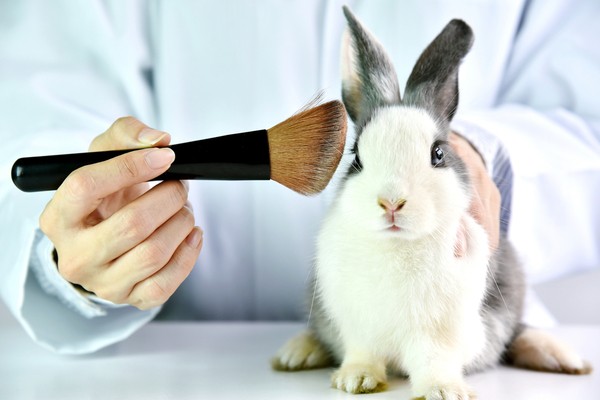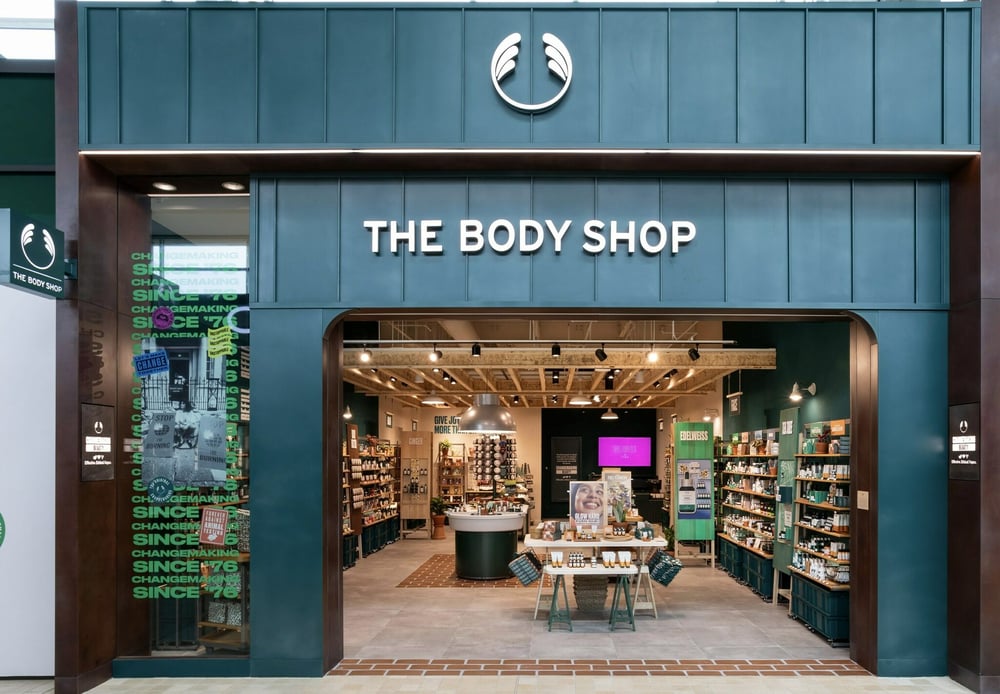Thanks to Brexit and the UK no longer having to abide by EU rules, the government has opened the floodgates for increased animal testing for the first time in more than two decades.
The testing of cosmetic products and their ingredients on animals was first banned in the UK in 1998 and across the EU in 2013.
This means that currently it is illegal to sell or market a cosmetic product if animal testing has taken place on the finished cosmetic or its ingredients before being sold in the EU.
As the impact of Brexit continues to be felt across the retail sector with severe supply chain issues and staff shortages being seen across the UK, there are other effects which have yet to take place.
As part of the EU, the UK would be banned from certain practices in line with union regulations. However, now as free agents it can consider re-commencing the testing of certain cosmetic ingredients on animals.
According to a letter published by the government, the UK is set to match a decision by the European Chemicals Agency (ECHA) that dictates that some specific ingredients must be tested on animals to ensure safety.
In response to the news, The Body Shop called on the government to protect the ban on testing cosmetic products on animals amid concerns there could be a u-turn.
The Body Shop director of sustainability, activism & corporate communications Chris Davis said: “We are saddened and angered that the UK Government is open to changing a policy that may result in cosmetics ingredients being tested on animals for the first time in 23 years.
“The Body Shop was the first global beauty brand to fight on this issue and we successfully campaigned to ban animal testing in cosmetics in the UK in 1998 and our commitment to end this unnecessary and cruel practice remains at the heart of our company to this day. We urge the UK government to consider their position and do the right thing.”
An RSPCA spokesperson told the Retail Gazette that it would be “extremely concerned were the Government to choose to undermine the spirit of these bans by allowing, and even requiring, the testing on animals of chemicals and other substances that are used exclusively for cosmetics, regardless of the purpose of the testing.”
“If the Government is considering making this backward step, then we, and I’m sure the public, will be urging them to think again.”
When asked if more needs to be done to protect the ban of testing products on animals, Joy Howieson founder and chief executive of the 100 per cent vegan and cruelty-free beauty brand Project Lip said that it is hard to make significant headway when there “is still a lot of mainstream luxury brands and even high street brands that are still testing on animals.”
Although companies can’t sell animal-tested cosmetics across Europe, they can continue to test cosmetics on animals outside Europe and then sell them in other markets. Therefore, companies can still profit from cruelty to animals – just not in Europe.
Big name international beauty retailers including MAC, Nars, L’Oreal, Estée Lauder, Rimmel London just to name a few are all still tested on animals.

Sold in over 120 countries around the world, MAC Cosmetics is one of the top three global makeup brands with an annual turnover of £700 million and 500 independent stores.
Francine Jordan from the Vegan Society said that the primary reason retailers commission animal testing is down to laws and legislation surrounding human and environmental health in certain countries.
The majority of beauty brands which are stocked in China are tested on animals because it is required in the country.
“If alternatives were known, available at a reasonable price, and backed by the government many retailers would opt not to test on animals,” Jordan added.
“This is what consumers want and retailers would want to meet their customers’ demands.”
While there are widespread campaigns to end cosmetics testing on animals, there are alternatives which retailers could now use.
Animal Free Research UK chief executive Carla Owen said: “There is a range of cutting-edge, non-animal methods that could be used to replace animals in many areas of research and testing, to acquire results that are much more relevant to humans.
“These include the use of human cells or tissues, organ-on-a-chip technology, stem cell technology, and in silico (computer based) modelling approaches.”
“Pioneering lab technology is rendering animal testing redundant”
She explained that there are more accurate, faster and cheaper ways of compiling research data that are more relevant to humans than using animals.
These include laboratory innovations such as a 3D organ on a chip, which simulates the activities, mechanics and physiological response of human organs and systems which can, for example, significantly reduce the drug development failure rate.
“These technologies are revolutionising research, so it’s in all our interests to ensure that pioneering, ethical research becomes the gold standard in labs – saving lives, money and time,” she added.
In agreeance, Jordan also said alternative methods were more efficient and said that cell testing is an easy option that can also be grown in laboratories, similar to where animal-based cells are currently used.
She added that thanks to the internet, consumers have more access to information about different products than ever before and that now as alternatives with research and evidence behind them are available they’ll soon want to shift, at least because testing on animals is becoming increasingly bad for brand image.
Is there more that other retailers can be doing to battle a possible U-turn on the ban of animal testing for cosmetics?
PETA UK science policy manager Dr Julia Baines said: “We are incredibly grateful to the hundreds of brands who have already urged legislators to uphold the EU cosmetics animal testing and marketing brands.”
She said the group is encouraging all retailers to use their marketing power to raise awareness of and support the current ban and added that beauty retailers always have the option to choose ingredients that have not been tested on animals and can choose to reformulate products or not to develop products if it means that animals are used in testing stages.
“Likewise, companies can choose to not put profit before ethics by marketing in countries such as China where tests on animals may still be required for certain types of products and they can commit to removing products from the market rather than allow any tests on animals.”
Click here to sign up to Retail Gazette‘s free daily email newsletter


















